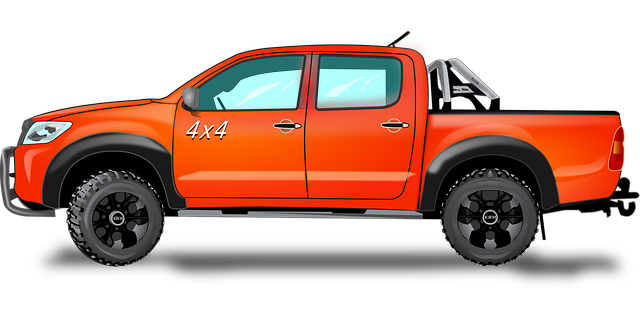ABS sensors, strategically placed near rgv wheels and accessories, are vital for enhancing vehicle safety. They monitor wheel speed during braking, detect lockup, and enable precise brake pressure modulation to prevent skidding and enhance stability on slippery surfaces. These sensors are crucial for RGVs (Recreational Vehicles or Motorcycles), raising safety standards and offering a more secure ride, especially in challenging driving conditions. Regular maintenance is essential for optimal performance.
ABS (Anti-lock Braking System) sensors are critical components that enhance vehicle safety, particularly on RGV (Recreational Vehicle/Motorcycle) wheels. This article offers a comprehensive guide to understanding ABS sensors, their integral role in preventing wheel lockup during braking, and how they contribute to improved control and stability. We explore common accessories associated with ABS sensors for RGV wheels and provide essential maintenance and troubleshooting tips for ensuring optimal performance.
- Understanding ABS Sensors: A Basic Overview
- The Role of ABS Sensors in RGV Wheels
- Common ABS Sensor Accessories and Their Uses
- Maintenance and Troubleshooting Tips for ABS Sensors
Understanding ABS Sensors: A Basic Overview

ABS sensors, or Anti-lock Braking System sensors, play a crucial role in enhancing vehicle safety, particularly when it comes to rgv wheels and accessories. These sensors are strategically placed near each wheel to monitor its speed during braking. By detecting wheel lockup and rapid changes in speed, ABS sensors enable the system to modulate brake pressure individually, preventing wheel lock while maintaining driver control. This technology is essential for preventing skidding and enhancing stability on slippery or unpredictable surfaces.
The data collected by ABS sensors are processed in real-time by a computer unit, which then adjusts the braking force accordingly. This dynamic process ensures that each wheel receives the optimal amount of pressure, minimizing the risk of losing control. In the context of rgv wheels and accessories, understanding ABS sensors is vital for optimizing performance and safety during operations that demand precise maneuvering and stability, such as in challenging terrain or emergency stops.
The Role of ABS Sensors in RGV Wheels

ABS sensors play a crucial role in ensuring the safety and stability of RGV (Recreational Vehicle or Motorcycle) wheels. These sensors are integral components of the Anti-lock Braking System, which is a critical safety feature on many vehicles, including RVs and motorcycles. By continuously monitoring wheel speed, ABS sensors detect and prevent wheel lockup during hard braking, allowing riders to maintain control and reduce skidding. This is especially important in challenging driving conditions, such as wet or icy roads, where the risk of accidents increases.
In RGV wheels and accessories, ABS sensors work in tandem with the vehicle’s braking system to provide enhanced traction and stability. They enable riders to brake individually on each wheel, reducing the risk of skidding and improving overall control. This not only enhances safety but also contributes to a more comfortable riding experience, especially during unexpected maneuvers or emergency stops. The integration of ABS technology in RGV wheels is a significant advancement that has revolutionized motorcycle and RV safety standards.
Common ABS Sensor Accessories and Their Uses

ABS sensors, part of a vehicle’s anti-lock braking system (ABS), work with RGV wheels and accessories to enhance safety on the road. These sensors monitor wheel speed, providing crucial data that helps prevent wheels from locking up during hard braking. Common ABS sensor accessories include wheel speed sensors, usually located near each wheel, and brake control modules that process sensor signals.
Wheel speed sensors are integral components that detect changes in a wheel’s rotation. They send this information to the brake control module, which in turn adjusts brake pressure to maintain traction. RGV wheels, known for their durability and performance, often come equipped with these sensors, ensuring optimal braking efficiency. Additionally, ABS systems can incorporate accessories like wheel speed sensors’ mounting brackets and connectors, further stabilizing the system and facilitating seamless operation.
Maintenance and Troubleshooting Tips for ABS Sensors

ABS (Anti-lock Braking System) sensors are vital components in modern vehicles, ensuring safe and controlled stopping. Regular maintenance is key to keeping them in optimal condition. First, always refer to your vehicle’s owner manual for specific guidelines. Keep an eye on any warning lights or messages indicating ABS issues, as early detection can prevent more serious problems. Regularly inspect the sensors for visible damage, corrosion, or debris buildup, especially around the wheel hubs. A simple cleaning with compressed air or a dedicated sensor cleaner can often resolve minor issues.
When it comes to troubleshooting, start by checking power supply and wiring. Ensure all connections are secure and free from cracks or damage. If you suspect a faulty sensor, use a voltmeter to test its resistance. Compare readings against the manufacturer’s specifications. For more complex issues, consult a professional mechanic, especially when dealing with rgv wheels and accessories, as specialized knowledge may be required to diagnose problems related to specific vehicle models.
ABS (Anti-lock Braking System) sensors play a vital role in enhancing vehicle safety, especially on RGV wheels, by preventing wheel lockup during heavy braking. By understanding their functions, common issues, and proper maintenance, both professionals and enthusiasts can ensure optimal performance of ABS sensors and the overall brake system. The right accessories for these sensors can further improve their efficiency, making them indispensable components in today’s automotive landscape. Remember that regular servicing and quick troubleshooting are key to keeping RGV wheels under control.



